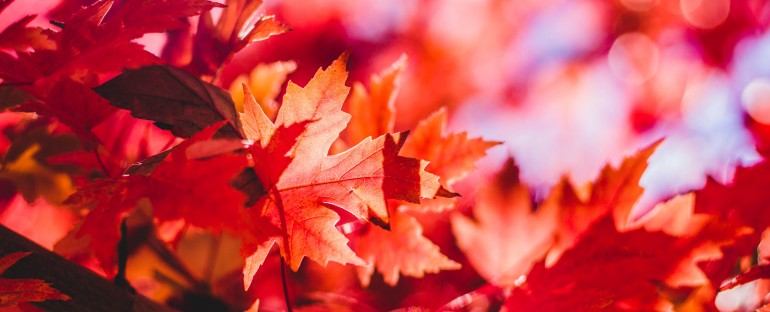My cousin Lynda died a few years ago after a short illness. We had been close throughout our childhoods and her early and unexpected death was a shock. I was working at hospice at the time, an experience that invited me to reflect on the impermanence of life and the importance of living here and now. And Lynda’s death was a profound wake-up call. It was one thing to work with clients at hospice, but when death hit close to home, it was an entirely different matter. I was at the ashram in India when word came that she was dying. There was plenty of time to reflect on our lives together and what her death would mean to me.
When we were in our early teens, Lynda and I both had crushes on Illya Kuryakin from the television series Man from U.N.C.L.E. and Dr. Kildare from the TV show of the same name. We faithfully watched our heartthrobs every week during the summers when I visited Lynda in Phoenix. The desert air was scorching hot and we spent hours every afternoon floating in her neighbor’s pool, drinking iced tea, and dreaming of our fantasy boyfriends, while Lynda’s older brother, Jim, teased us mercilessly.
When the Beatles burst onto the scene, like typical young teenage girls at the time, we threw ourselves wholeheartedly at Paul and George. Our fantasy lives were perfect—more real (at least more fun) than our mundane, everyday lives consisting of school, homework, washing dishes, cleaning our rooms. We could enter our magical, make-believe worlds whenever we wanted and be swept away.
Over the next few years, we were immersed in our high school existence, with real-life boyfriends and our sights on college and beyond. Illya, Dr. Kildare, George, and Paul faded into the background. We went on to live our adult lives of marriage, career, children, but those adolescent years, when we were shaped by the same influences and shared hopes and dreams, would always be a part of us. We were going to be missionaries, run an orphanage…or maybe become flight attendants. Those dreams never materialized; others took their place as our lives unfolded in unpredictable ways.
When I went to Phoenix to see Lynda for what turned out to be our last meeting, her message to me was, “Life is short, enjoy it while you can, don’t wait to do what you really want to do.” She died a few weeks later.
I was doing what I wanted to do in many areas of my life, but as I reflected on her message, and the message of my clients at hospice, it seemed to be an invitation to wake up, to be more fully present here and now. It was a call to commit more deeply to my spiritual evolution. After all, what else are we here for?
Here and now is the only reality—the only place we are alive. Everything is constantly changing, and attempting to hang onto the ever-vanishing experiences is like trying to grasp footprints on water. Our lives continually arise and recede. Living in the past or future only prevents us from flowing with life, allowing what comes to come and what goes to go without resistance.
The spiritual masters tell us we are all daydreaming, living in a limited, impermanent world of our own creation until we wake up to the limitless beings that we are. They compare this awakening to waking up from a dream. The dream seems real until we wake up and see it was ephemeral. The waking world replaces the dream world as soon as we wake up. In a similar way, waking life seems so concrete and tangible, but when we begin to delve beneath appearances, its illusory quality becomes apparent. As we wake up from our limited view of ourselves and our world, we have access to more expansive dimensions. Our everyday lives take on the quality of infinity. This is the purpose of the spiritual path—to expand our awareness beyond our ego-mind’s experience of life, to enter the now.
Lynda’s death was a poignant reminder that our lives here on Earth are over in a flash. Facing mortality is a powerful invitation to deepen our commitment to live more fully the life we have been given, and to commit more wholeheartedly to our spiritual evolution. And as we evolve in consciousness, we enhance our ability to contribute to the whole.
Consider This: Has facing death deepened your appreciation of your life here and now?
Recent Posts
Recent Comments
- Terry Scott on CONTEMPLATING THE UNKNOWABLE
- Irene Kokatay on THE PATH OF SELF-KNOWLEDGE
- Terry on THE PATH OF SELF-KNOWLEDGE
- Irene Kokatay on LIVING IN INFINITY
- Terry Scott on LIVING IN INFINITY





2 Responses to LIVING IN INFINITY